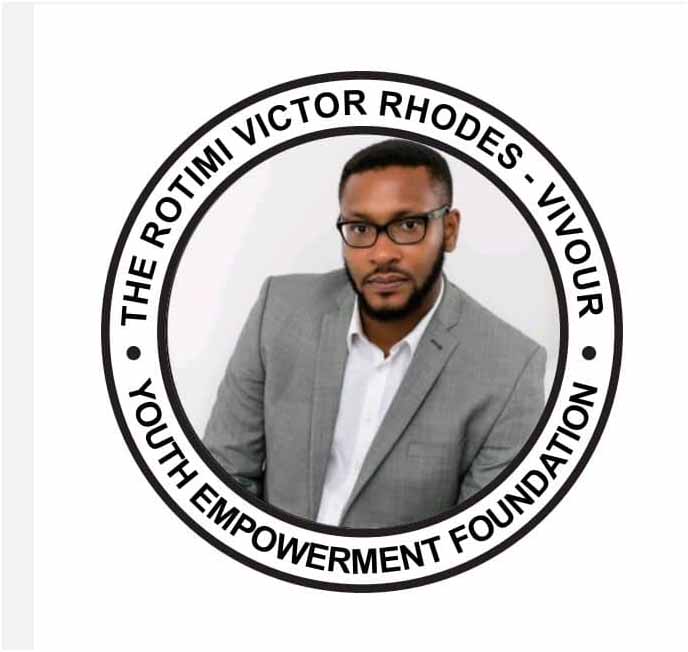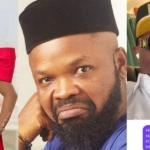
Dr Honest Anaba and Mr Lanre Awoliyi of Resurgence Health Support Initiative based in Lagos, Nigeria both presented a case study on the current challenges bedeviling Nigeria’s Mental Health Industry and also provided some key insights into the fragmented state of relationships between parents and children today in Nigeria. Their speech included the various signs to look out for when our youths are going through various mental health and drug addiction challenges.
Next up was Mr Ladipo Sadipe, a youth advocate and founder of For the Culture, NG which creates opportunities for youths to harness their talents. He did a very commendable job of highlighting all various challenges faced by the youths whether in Nigeria or abroad. He highlighted the problems of social media. He suggested solutions towards tackling various challenges faced by Nigerian Youths. One of the very many solutions he proffered was the use of adequate therapy and counselling sessions for youths similar to what obtains abroad. He decried the state of affairs in Nigeria’s mental health industry for the youths where there are no avenues for them to express their frustrations to competent psychologists whilst growing up.
The next speaker was Mrs Olakunle Akande-Okupe, a social psychologist and teenage counsellor with many years of experience counselling teenagers and with vast knowledge of the challenges that the youths actually face. She presented a paper which was directed at parents to understand the challenges the youths face. She presented a very passionate address and put the responsibility back on the parents for allowing their children to go through many of these challenges. She also echoed what was said by the previous speaker, Mr Ladipo Sadipe and stated that the shame associated with parents taking their children for counselling and therapy should be erased.
Dr Shade Olajubu, a consultant forensic psychiatrist and cognitive analytic therapist of Kent and Medway NHS Social Care partnership UK with over 30 years’ experience was the next speaker on stage who drew from her wide experience working both in Nigeria and the UK. After we had all heard the challenges faced in Nigeria’s mental health industry, it was her turn as evidenced by the title of her paper to propose a call for reform towards addressing Nigeria’s mental health, drug addiction and suicide challenges. She delivered a very enlightening paper providing useful statistics on the amount of suicide cases that are presently reported in the UK and Nigeria. She also brought attention to the fact that suicide which is a mental health challenge is not recognized as such in Nigeria. She brought to the fore, the legislation which addresses mental health and suicide and that there is an under reporting of suicide in the country due to stigma. She referenced Section 327 of the Nigerian Criminal Code, which stipulates that if someone attempts committing suicide and it comes to the attention of the Nigerian police force, instead of that person receiving treatment they are most likely to get locked up and charged with attempted suicide. She also provided statistics that show that the highest rates of suicide exist in Lagos, Delta, Oyo, Ondo and Kano and it is because there is marked poverty in urban areas. She concluded by providing various treatment support services for mental health, drug addiction and suicide in Nigeria.
Dr Cosmos Duff Gordon, a drug addiction specialist based in London, UK was the next speaker on the panel to take center stage and presented a paper on Drug Addiction: Causes, Signs and Symptoms and Modern day treatment. He defined the term of drug addiction and analyzed its definition as provided by the WHO. He highlighted the fact that drug addiction issues always have a cultural context and that it would be a good idea for Nigerians to think about what applies to Nigeria. He explored the treatment of drug addiction and stated that treatment would have to involve abstinence and change and that treatment would also have to involve stabilization of any co-occurring mental health disorder, improved emotional self-regulation and recovery lies in connection. He also mentioned that drug addiction treatment requires along investment and adequate support.
Dr. Chiedu Obuaya, who was next to speak is a consultant psychiatrist and clinical lead at the Soke, London. He spoke on mental health disorders: symptoms, causes and treatment. He highlighted the various mental health disorders providing an evaluation of all the symptoms to look out for. He also provided advice on what to do when someone you know has attempted suicide. He emphasised that there are various things one can do. One should begin by identifying the various factors that led the person to that point. Secondly, is there an underlying diagnosable mental health condition that can be treated? Are there other mental health interventions like psychological therapy? The importance of psychological therapy was emphasized as a means to establishing what drove the person to that point and also with coming up with a crisis plan.
The last and final speaker was Mr. Josh Dickson, a trauma specialist representing Resurface UK who spoke on Trauma, its impact on an individual, the various types and the modern treatment methods vis-à-vis mental health, drug addiction and suicide. He proceeded by clarifying what trauma actually means and describing the two main types of trauma and how trauma sets of addiction in an individual. He also discussed his two favourite methods of treating trauma, EMDR and EBT.
Based on this very informative symposium, the recommendations from these professionals presented to the Nigerian Government are as follows:
- Strengthen effective leadership and governance for mental health.
- Provide comprehensive, integrated and responsive mental health and social care services in community based settings.
- Implement strategies for promotion and prevention in Mental Health.
- Strengthen information systems, evidence and research for mental health.
- We need to engage with global perspectives on suicide and mental health but also naturally.
- We need to have a national strategy to reduce suicide or promote mental well-being.
- We need to have strategies in place in Nigeria where e there is a reduction in access to the things that can allow suicide e.g sniper.
- Our media needs to be responsible in the way and manner that they report suicides.
- We need to develop life skills, resilience and coping strategies in the youths.
The Foundation offers consultation for world-wide treatment services and can be reached on 09095556616 or on Twitter @thervrvfoundat1 and on Instagram, Facebook and tiktok @thervrvfoundation.





